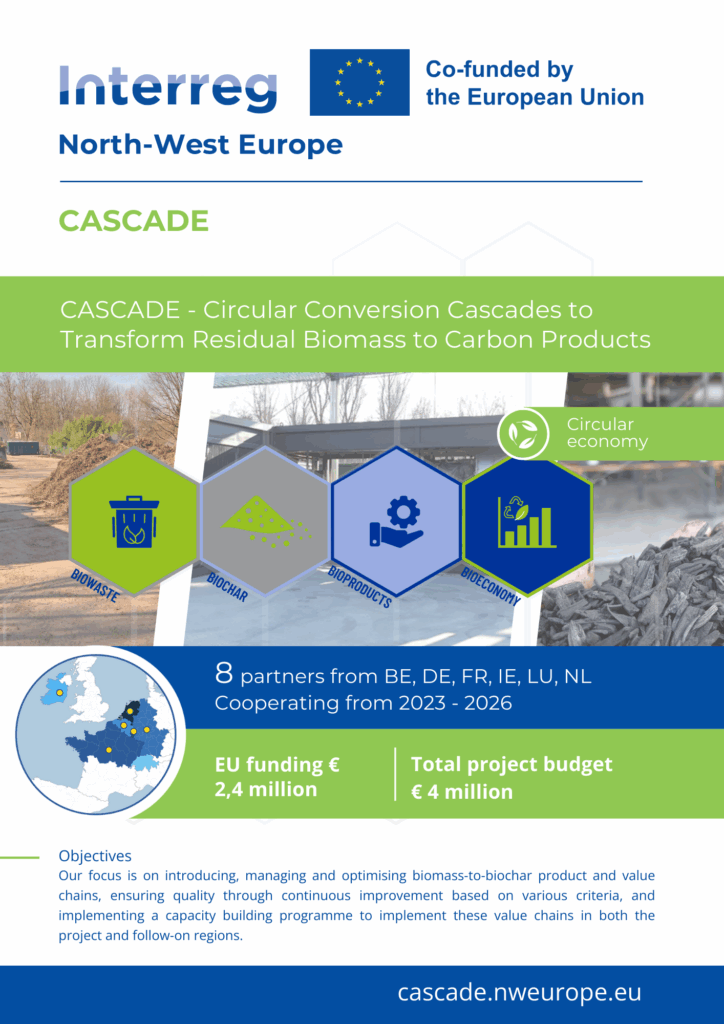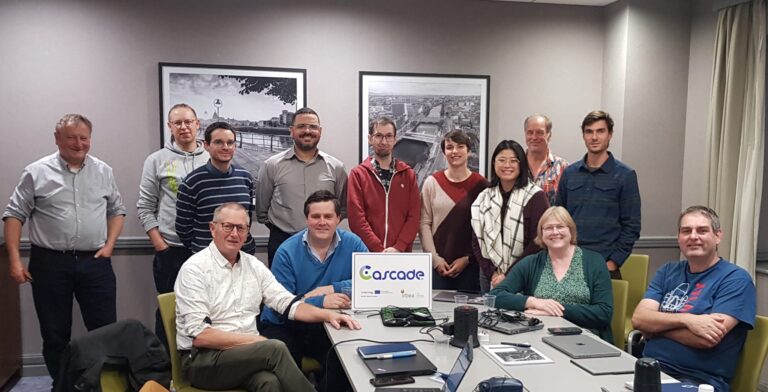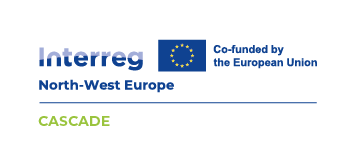CASCADE Project
Circular Conversion Cascades to Transform Residual Biomass to Carbon Products
The CASCADE project is part of the Interreg North-West Europe (NWE) programme and focuses on promoting the circular carbon economy by converting residual biomass into valuable carbon products—most notably, biochar. These carbon-rich materials serve as sustainable alternatives to fossil-based products and contribute to long-term carbon sequestration.
The project’s central objective is to develop, test, and transfer scalable biochar value chains that connect local biomass sources with practical applications across sectors like agriculture, construction, and environmental management. CASCADE combines technical innovation with regional implementation, showcasing how biochar can become a powerful tool in the transition to climate resilience and resource efficiency.
Total project budget: € 4 million
EU funding: € 2,4 million
7 Partners from DE, LUX, NL, IR, BE, FR.
INTERREG NWE 2023 – 2026

The project is being implemented across seven pilot regions in North-West Europe. Each pilot explores local biomass streams, production conditions, and end-use strategies for biochar—tailored to the specific challenges and opportunities of the region. These pilots demonstrate both technical feasibility and economic potential, providing replicable solutions that can be adopted elsewhere.

Project Activities
The CASCADE project carries out a wide range of interconnected activities, combining technological development, practical demonstration, and capacity building. These activities are designed to advance the uptake of biochar-based solutions within a circular carbon economy:
Biochar Value Chain Development
Each pilot region identifies local biomass streams (e.g. green waste, wood residues, agricultural by-products) and matches them with suitable biochar production and application techniques. The goal is to set up sustainable, locally adapted “conversion cascades”.Pyrolysis Technology Implementation
Several types of pyrolysis systems are tested and installed at demonstration sites. These vary in scale and feedstock flexibility to meet different regional needs, showing how decentralised carbonisation systems can be integrated into municipal or rural infrastructures.Classification & Quality Framework
CASCADE contributes to developing a biochar classification and quality assurance system, helping users select the right biochar type for specific applications (e.g. soil amendment, filter material, construction additive).Demonstration Pilots in Key Use Sectors
Use cases include:Agriculture: Improved soil fertility, nutrient retention, and water management
Construction: Integration of biochar into low-carbon asphalt and biochar-concrete prototypes
Water Management: Use of biochar in urban stormwater filters and rain garden infrastructure
Cultural heritage & energy: Sustainable biochar coal for historical applications (e.g. steam locomotives)
Capacity Building & Awareness Raising
CASCADE develops materials and formats for Continuing Professional Development (CPD), vocational training, and public exhibitions. Through workshops, training weeks, and events, the project builds knowledge and fosters cross-sector collaboration.Sustainability Monitoring & Replication Tools
The project collects technical, environmental, and socio-economic data to evaluate the impact of each pilot. Tools and templates are created to support replication and scaling up of successful models in other regions.


